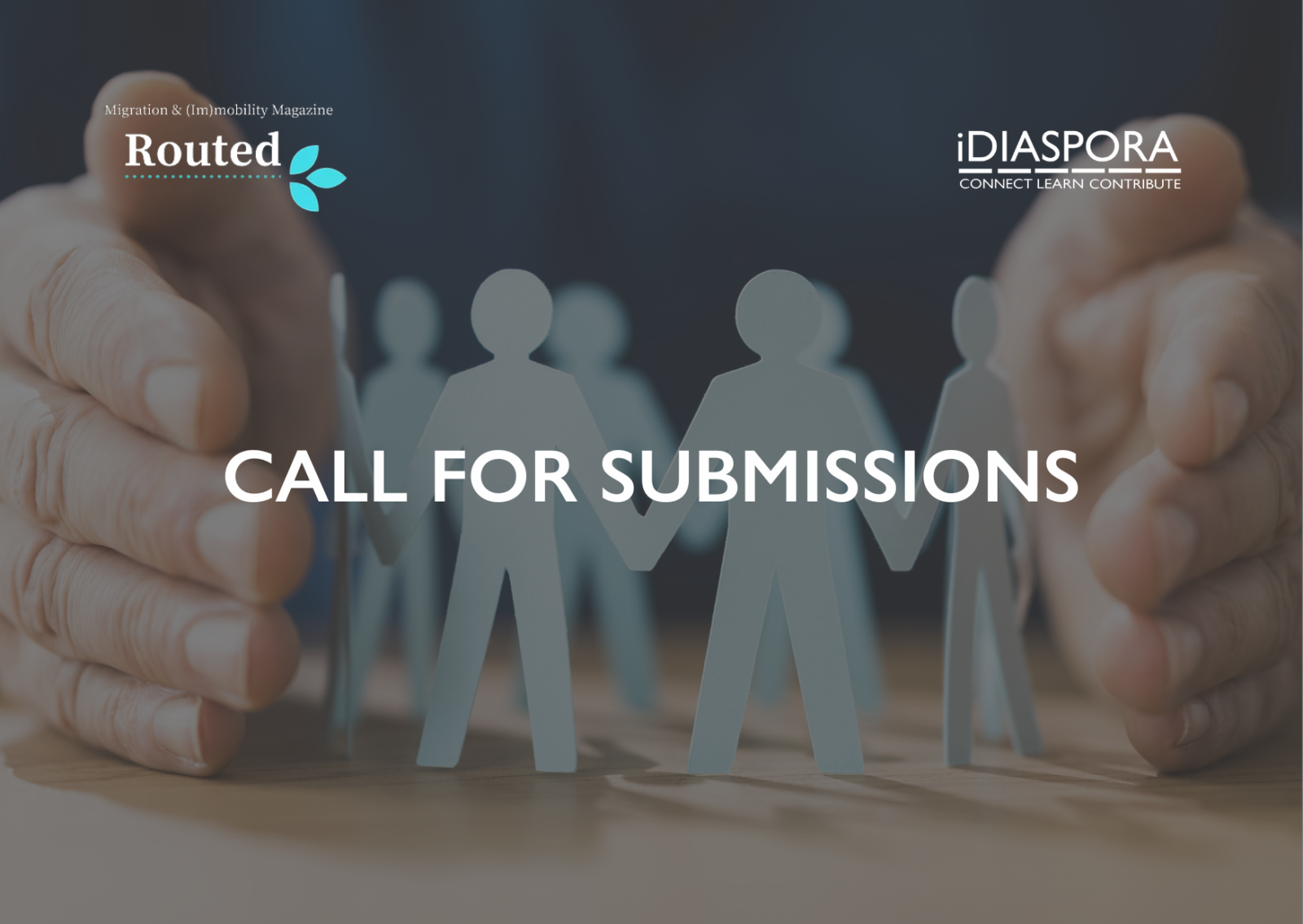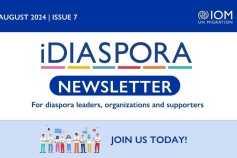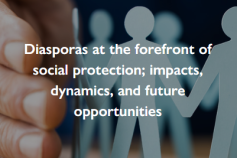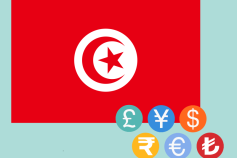Who: A collaboration between Routed Magazine and iDiaspora:
● Routed Magazine is an online publication on migration and (im)mobility. Bridging the divide between specialist academic literature on human mobility and popular portrayals of migration in the media, Routed Magazine hopes to bring a fresh, critical perspective to the study of how and why people move, as well as the contexts of mobility.
● iDiaspora is a global engagement and knowledge exchange hub for diaspora communities and those looking to engage with them. It provides comprehensive, regularly updated data and analysis relevant to diaspora communities, policy makers, NGO actors, and showcases successful diaspora actions and partnerships.
What: A special issue on the theme of ‘Diasporas at the forefront of social protection: impacts, dynamics, and future opportunities’, to be published in July 2023.
Social protection has long been considered something which states provide to its citizens. While the role of states in providing social protection has been overly emphasised, mobility, globalisation and inequality are changing the way people access care. Transnational communities and diasporas are increasingly playing a role in supporting their families and communities through their personal networks and initiatives granting them access to health, education, secure retirements and social security.
Social protection is a cornerstone of the 2030 Agenda for Sustainable Development, as reflected in target 1.3 of the Sustainable Development Goals (SDGs) on “social protection systems and measures for all, including floors.” Indeed, social protection systems help individuals and families cope with crises and shocks, find jobs, improve productivity, invest in the health and education of their children, and protect the aging population.
Considering the important role that diasporas play in development and humanitarianism, this publication aims to explores the work that diaspora leaders and organizations are doing to develop and sustain social protections. Projects specifically around contributory and non-contributory benefits across five policy areas: unemployment (covering unemployment insurance and assistance benefits); old-age contributory and non-contributory pensions; family-related benefits (maternity, paternity, parental and child benefits), guaranteed minimum resources; and health-related benefits (sickness benefits in kind and cash, and invalidity benefits).
When: The deadline for proposals is 15 May 2023.
How: If you are interested in proposing a submission for this issue, please submit a short abstract no longer than 250 words in the APPLY button below.
For this special issue, we welcome contributions that explore the following themes:
- Diaspora Leaders and Organizations Providing Social Protections. How do diasporas contribute to social protection coverage (including measures to secure protection against unemployment, pensions, old-age pension and social care, healthcare, and other family-related benefits)? How are diaspora contributing to poverty alleviation in their countries of origin or destination?
- Diasporas at the Forefront of Social Protection Regimes. How are diaspora communities fostering and promoting social solidarity? How are diaspora initiatives developing and sustaining social protection measures? How have Diasporas optimized government and NGOs to advocate for rights? What is the role of Diasporas in transnational social protection (TSP) regimes and systems?
- Diasporas Fostering New Opportunities for Social Protections. How do diasporas collaborate with other stakeholders to develop inclusive social protection systems? How has Diaspora become leaders in the social protections space? What are future opportunities for Diaspora to engage with social protections in their communities?
Other considerations
- We are also keen on receiving pieces that analyse how diasporas have advocated to receive social protection.
- We welcome pieces from all the regions of the world.
- We are particularly interested in publishing work from diaspora members, migrant leaders, diaspora organisations, government offices, international organisations, businesses, and start-ups.
- Articles should address a broad audience, made of experts and non-experts, and should be originally written in English.
- We would also like to hear about your relationship to migration and mobility (if you are a migrant, a researcher, a student, a practitioner).
Article guidelines:
- The length of the piece should be between 700 and 1000 words.
- The article should consistently use British spelling and grammar.
- The simpler the language the better. Try to briefly explain or add links to any concepts, organisations, policies... introduced in the article.
- Concepts and cited works/legislation/articles should be inserted in the article as hyperlinks.
- All acronyms should be specified in parentheses.
Some notes on the publication process:
- Once you send us your proposal, we will get back to you after the deadline for all submissions (approximately a week later).
- First drafts are due on 9 June, and final drafts on 1 July for publication on 15 July 2023. After you send us your first draft, our editor will get back to you with their comments, which you will review before finalising the piece.
- The article will be translated to Spanish, Portuguese and French and promoted on social media.
- We understand this topic may be highly sensitive. If any writer wishes to remain anonymous, we commit to protecting their identity.
- Please be aware that any opinions you express in your article will be yours alone and not reflect Routed's, iDiaspora’s, or IOM’s general stance.
Timeline
- Abstract due by May 15, 2023
- Notifications of selected abstracts 21-22 May, 2023
- First Draft due by 9 June, 2023
- Final Draft fue by 1 July, 2023
- Publication 15 July, 2023
APPLY
If you have any questions or experience any problem please contact Veronica Uribe-Kessler at veuribekessl@iom.int


























